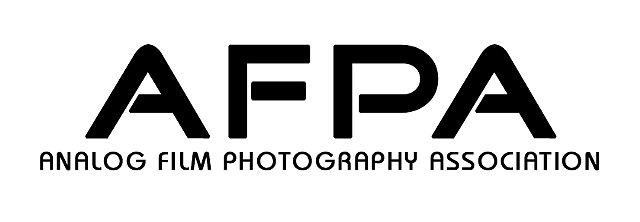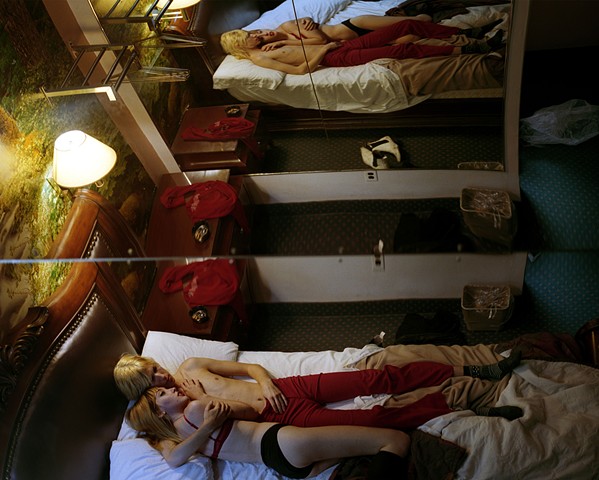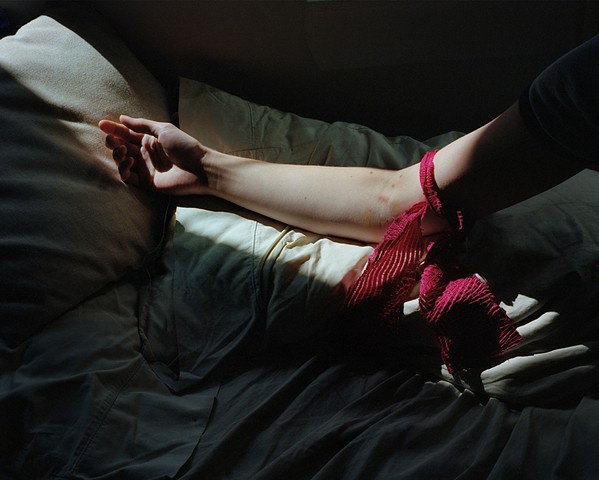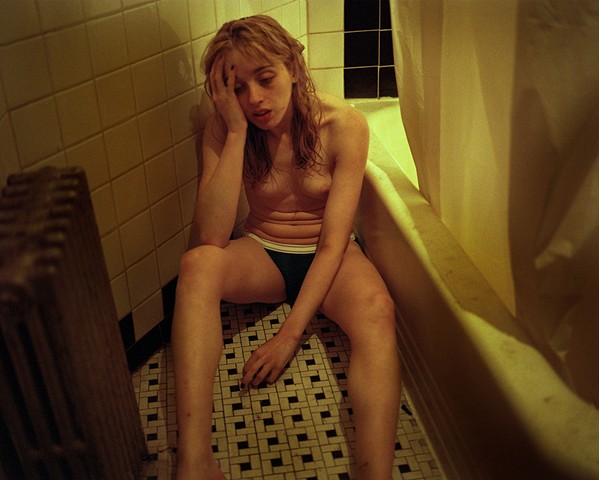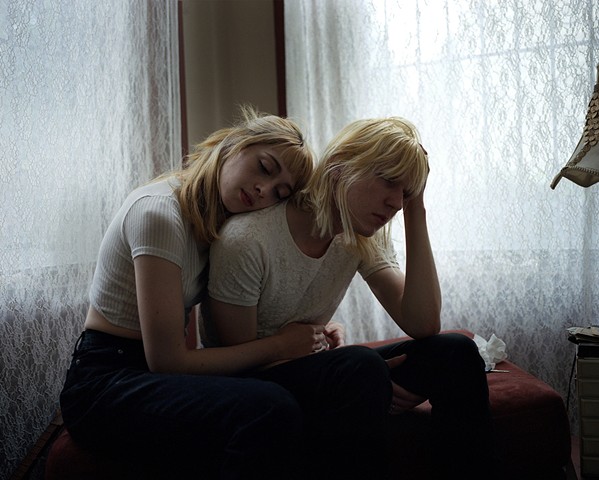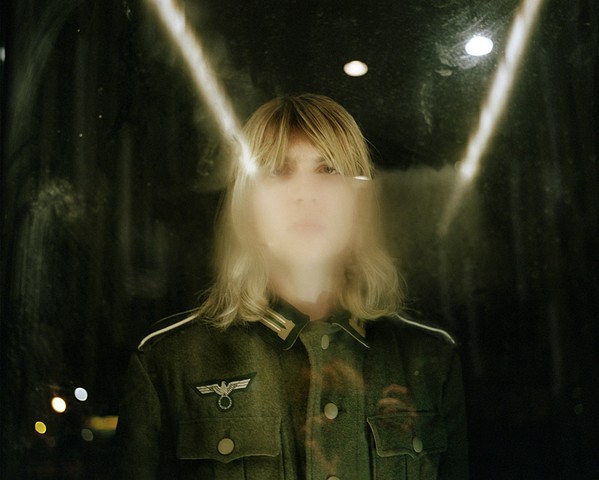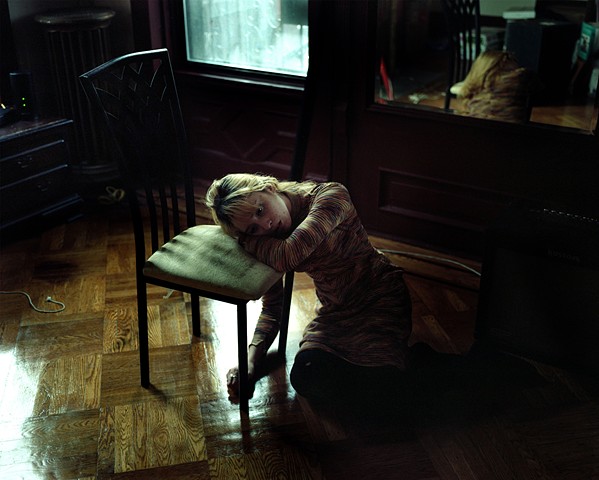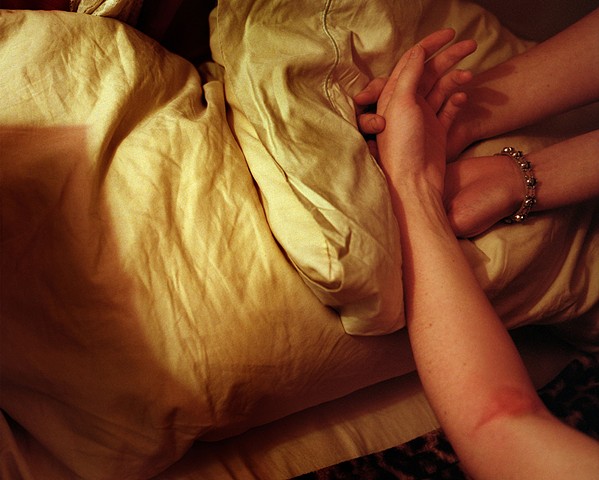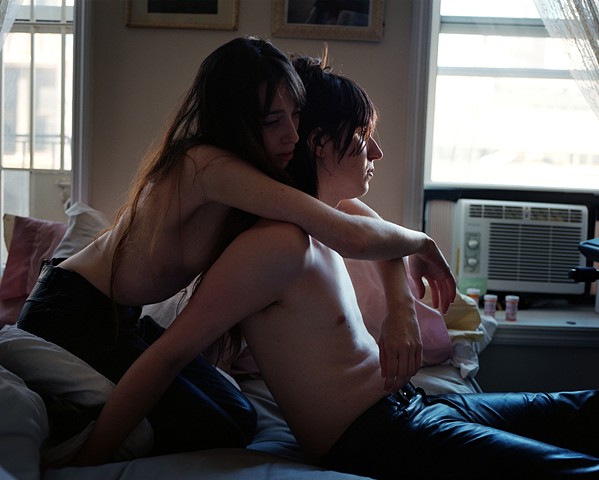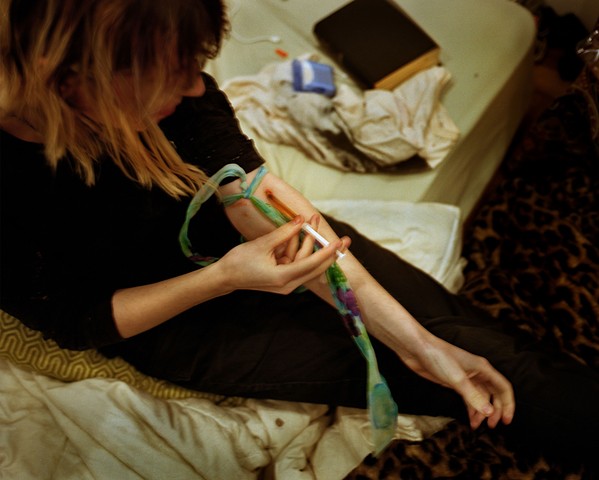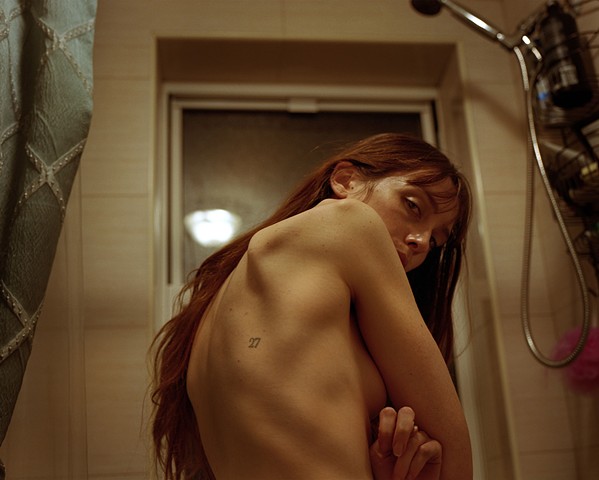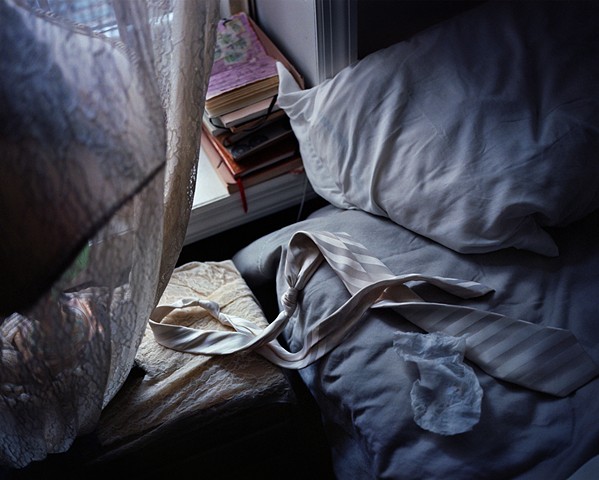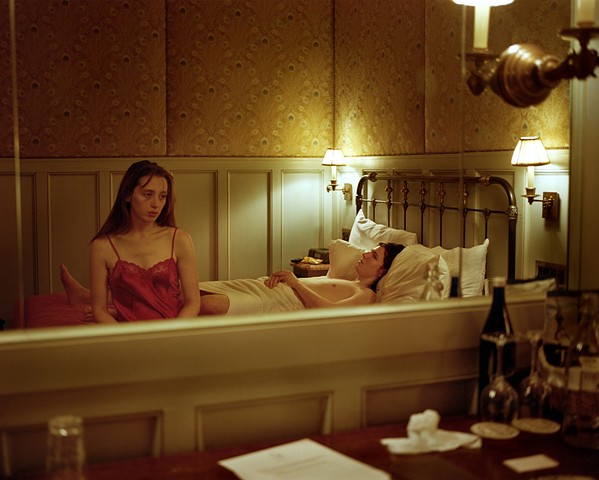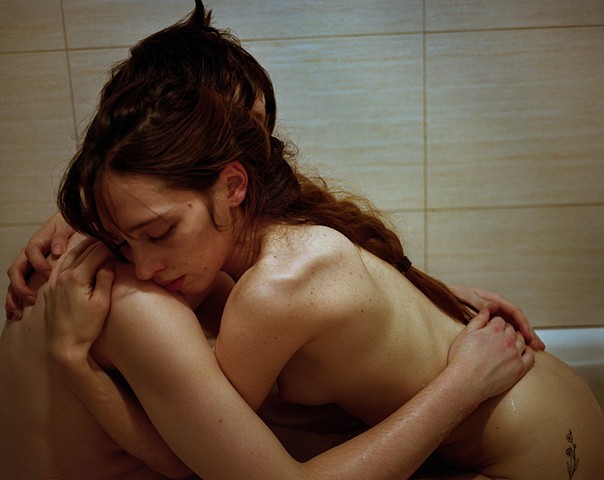Nika De Carlo - See You In Heaven
I am a survivor of the opioid crisis. My in-process series, “See You In Heaven”, started as a self-documentary. My camera first became a tool to examine and reason with myself and my addiction, which grew into a means of comfort, escape, denial, and desperation. While photographing myself, I turned my camera onto another person who was also entrapped in it: my partner. I chose to photograph ourselves together as an attempt to cope, to better understand the heart of the disease, and most importantly, to realize the power it had on us. Through photographing myself and my partner repetitively, I created a visual diary that traced the shifts of our intimacy and distance, which seemingly paralleled with our relapses and attempts at recovery. As the series grew, I found myself discovering a common theme: a sense of waiting and loss. In the manipulative heart of addiction, love for another is overpowered by this, emptying and refilling oneself with a venomous weight of loss of control. By creating these photographs, I found myself gaining some of that control back. After years of photographing our shared experiences, I am now continuing the series to also record our shared recovery. Laced with fragments of the past and hope for the future, “See You In Heaven” is a tender and honest depiction of our relationship with each other, the grip of addiction, and the journey that comes after.
Born in Los Angeles, California in 1993, Nika De Carlo relocated to a small town in Connecticut at a young age. As her father became terminally ill, she found photography as a refuge, which ultimately led to her work in self-portraiture. At age eighteen she moved to New York City to study at Pratt Institute, where she received a Bachelor’s degree in photography with a minor in filmmaking. It was during this time that she solidified her shooting style with medium format film photography. Noted as often having a cinematic quality with an emphasis on color, her photography focuses on documenting her own personal life and close friends, centering on themes of relationship dynamics, vulnerability, and intimacy. Her most recent in-progress series, See You In Heaven, follows her battle with heroin addiction and recovery with her partner. She has participated in two solo shows in New York City and various group exhibitions throughout America and Europe. As an addition to working on her photographic endeavors, she has recently directed her first short film, Sick in Paradise, which is set to release in 2020. Nika De Carlo currently lives and works in New York City.
What camera did you use to capture "See you in Heaven"?
I shot the entire series on the Mamiya 7II.
Did you ever feel at one point this can be the last photograph you will ever take while working on this series?
I have had these feelings, more so when I was deep in the midst of my addiction. It is a scary feeling knowing a single substance can take your life. There were definitely some moments I wondered if each photograph would be my last. Contrasting those feelings, though, I always felt a strong sense of invincibility. Even though I knew overdose was a possibility, I never thought it would happen to me — and when it did happen, I felt it was a rare occurrence that would never happen again.
Why "See You in Heaven:? What made you come up with that name for the series?
No matter how strong our sense of invincibility was, my partner and I always knew death was a possibility. “See You in Heaven” is a promise from myself to him — that no matter what happened to either one of us, we would always be reunited in the end.
What does your work aim to say?
My current series, “See You in Heaven,” aims to share my own personal story. It is an in-process, 5-year long documentation that follows my relationship with my partner and our past shared opiate addiction and recovery. I strive to not only show physical time passing through these images, but more so to examine how our addiction affected ourselves as individuals as well as together as two people in love.
Does your art represent the ongoing issue America has with opioid?
Yes, I do believe so. The opioid epidemic affects people of all ages, which I believe needs to be talked about more. Going through an opiate addiction alone is a very painful experience, and going through it together with a romantic partner brings up even more obstacles. I hope my series can shed light on these issues and create more conversations around the opiate epidemic and how we can create positive change.
